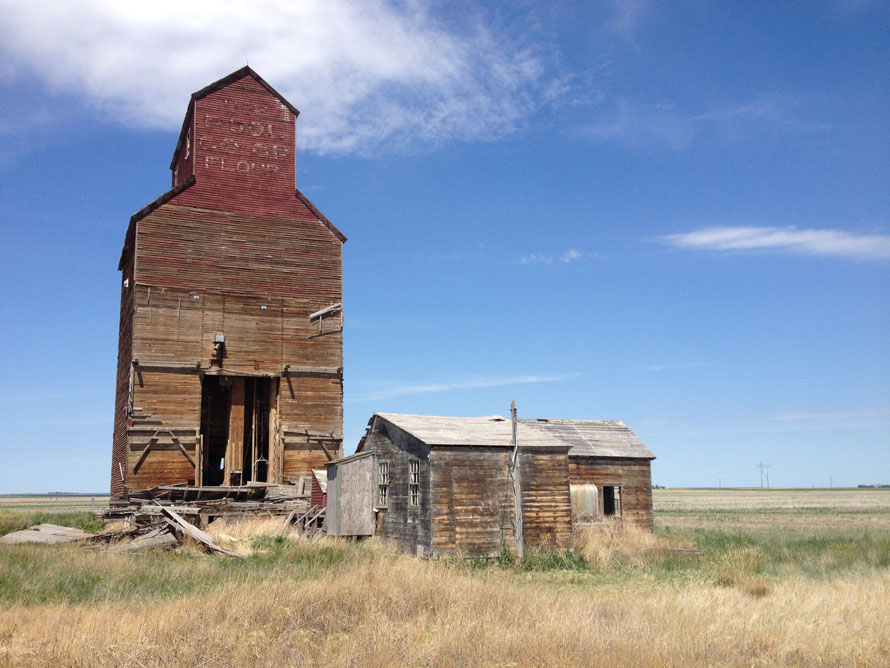
I was driving down Highway 4, between Rosetown and Swift Current, Saskatchewan, when I saw the old abandoned wood crib elevator in a farmer’s field just off the highway. How, I wondered, did it come to be there, all alone?
As it turns out, the elevator was once on a railway line—the old Canadian Pacific Railway McMorran Subdivision. Built in 1923, it was one of at least two elevators in the hamlet of Thrasher. But on this summer day in 2015, there is only one elevator left, abandoned like the rail line, and like Thrasher itself.
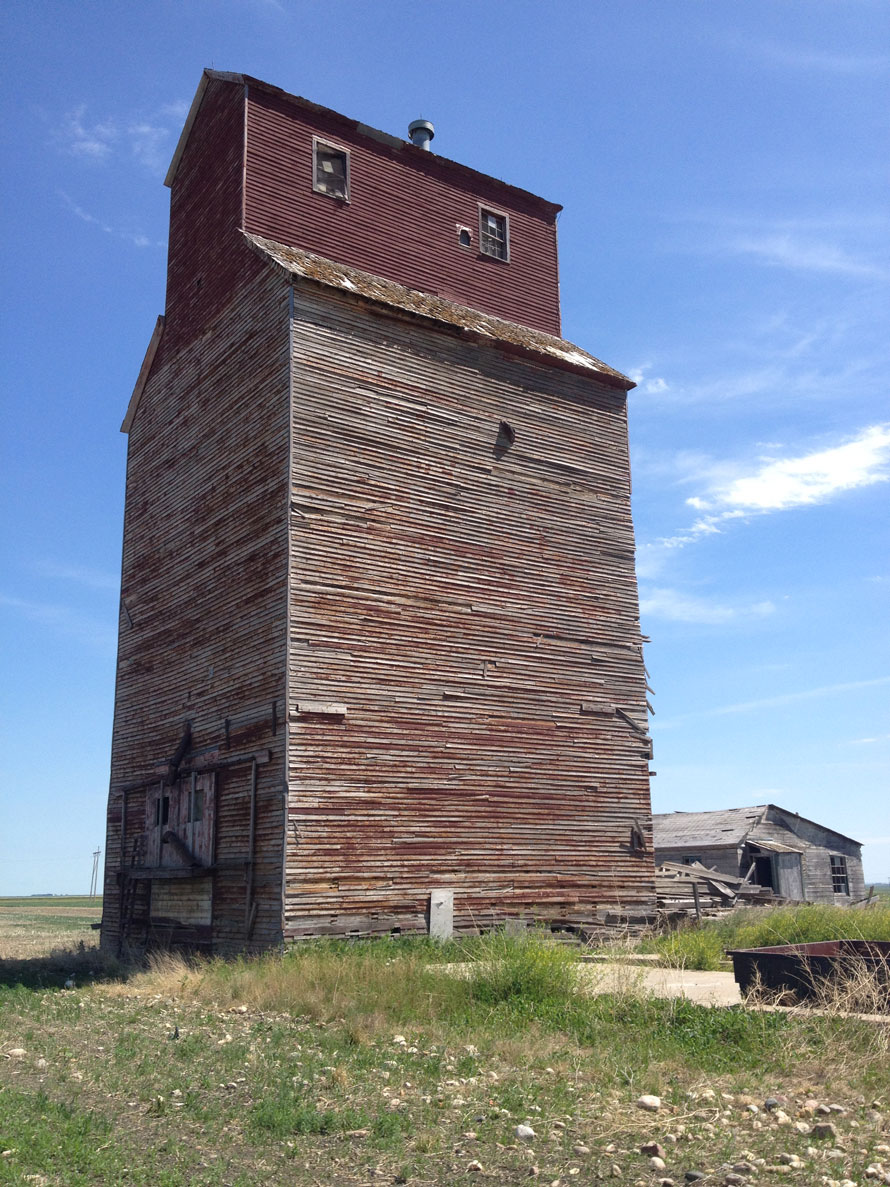
Many years ago, the old elevator would have been alive to the sounds of trains and the voices of farmers exchanging news, talking about the weather and complaining about the railways and the Wheat Board.
But when I went to inspect it closer up, all I heard on this day was the sound of doves cooing inside the empty old structure. That and the sound of the wind, blowing the past away.
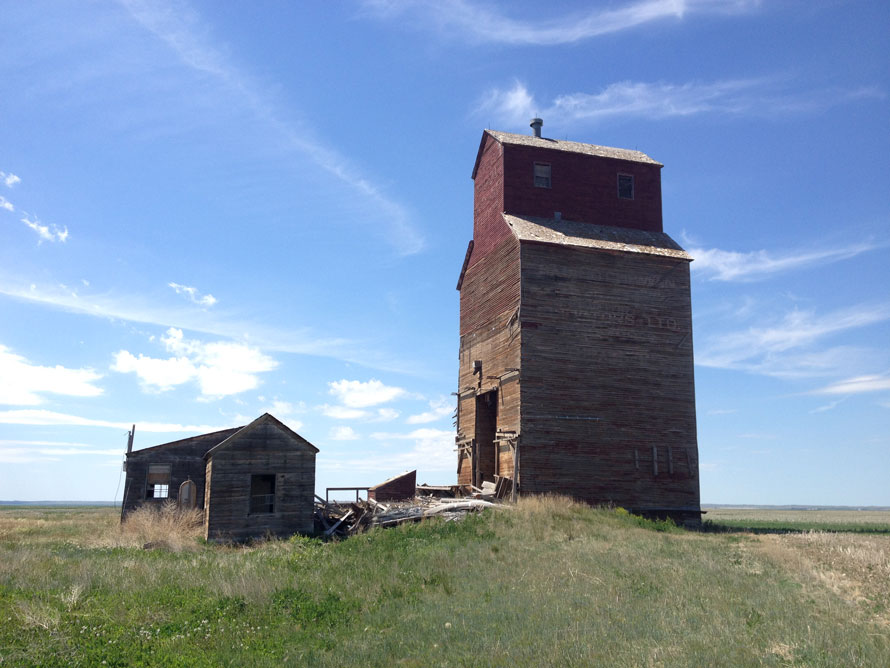
The Thrasher elevator burned down in 2017. Deemed a safety hazard, it was intentionally destroyed. According to the Regina Leader-Post, from which the photos of the elevator in flames are taken, it took only twenty-eight minutes for the elevator to be reduced to rubble. According to the owner, farmer Stuart Lawrence, it was the last vestige of the former town.
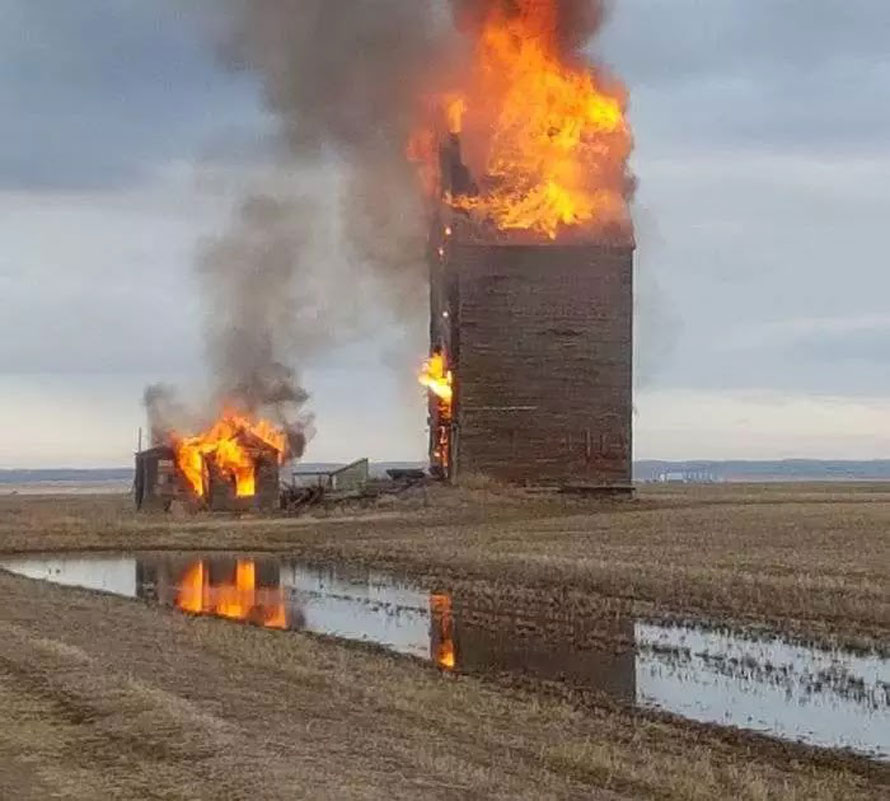
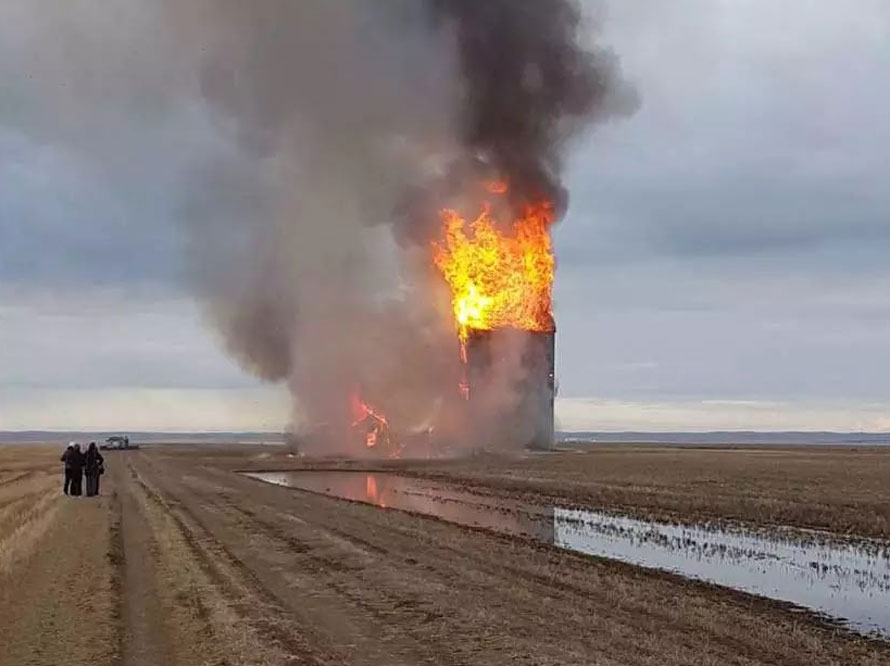
At one time there were about 6,000 elevators like the one at Thrasher on the Canadian prairies. Today only about 600 or fewer remain, many of them abandoned. The destruction of the Thrasher elevator means there is one less on that list.
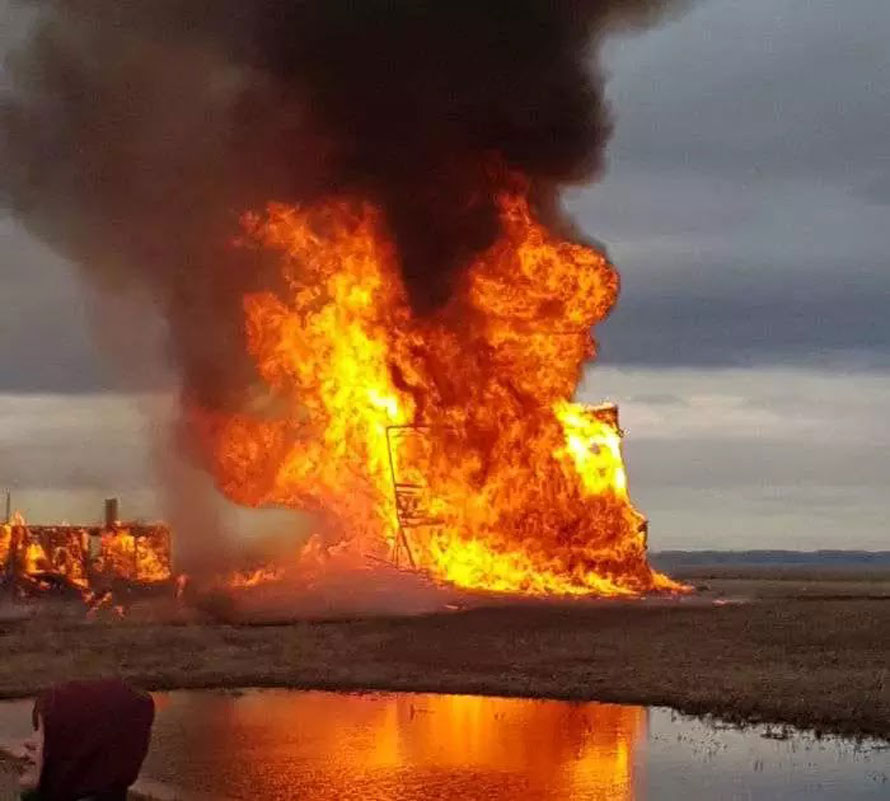
John Longhurst – Text and photographs Copyright 2018
This is a sad moment in both the agricultural and the railroads history in this area. Unfortunately this happens all too often each and every day. On the positive side your photos document for all time it’s latter day appearance. Many would say that it should have been saved, but there just isn’t enough man power or money to save everything. To history ‘s advantage you have saved it ! Even from your photographs, a model can be built.
Seeing this article begs the question about how modern farming in that area has worked around the need to use grain elevators like these to get products to market? Seems that there would only be two possibilities, no more farming in this region or their using trucks. Any insights on this? – Steve Crise
Steve — The railroads will now only pick up from elevators that can hand them full-length unit trains, so yes, farmers have to truck their grain much longer distances to reach the large elevators, and these exist in many fewer places and on many fewer rail lines than the old small elevators.
Why don’t we just burn everything down that’s over say 50 years old! Cleanse the earth of stagnation!
Wow how sad that it was burned down. I know other such structures that still stand along old right of ways that are now bike trails. They really are well built and have millions of board feet of lumber. I’m sure it could have been salvaged at least. People are crazy about this kind of wood.
I wish I had seen this elevator, John. I’m glad you photographed it before it was destroyed.
The CPR McMorran subdivision was abandoned sometime between 1982 and 1984.
https://www.traingeek.ca/wp/trains/class-1-railways/cp-saskatchewan/mcmorran/
I came through just after the line was abandoned in the early 1980s. I have some photos from Thrasher that I would be happy to post if you like.
Chuck, yes, I would like to see your photos from Thrasher. See email.
I wonder what impact the repeal of the “Crows Nest” grain rate in the 90s had on the elevator system? By the mid-1970s the Saskachewan Wheat Pool estimated that a “fully modern” elevator needed to handle a million bushels a year to be viable. At that time the average Pool elevator was handling 300,000 bushels. Add to that the fact that the elevator system was badly in need of renovation by 1975 and perhaps there were other pressures on the elevator system besides the abandonment of railways.
My Great Uncle, The Rev John Grongar Stephens was a Presbyterian Minister and moved throughout Manitoba and Assiniboia in what became Saskatchewan from the late 1880’s to 1950. He wouldn’t recognise these places now from the time that he lived and worked.